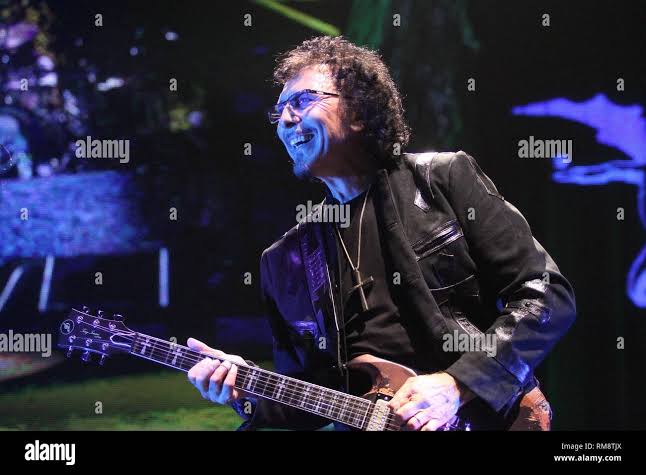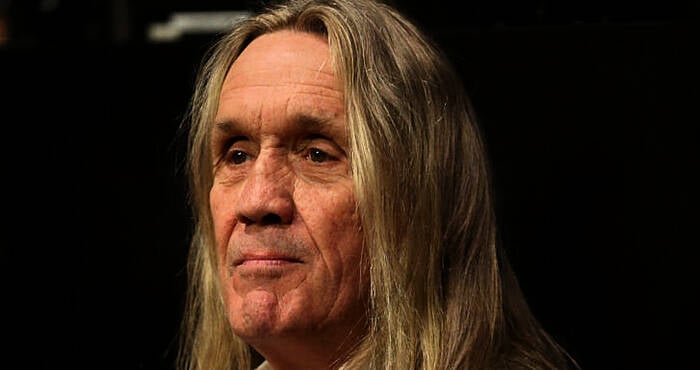BREAKING: Black Sabbath GUITARIST Tony Iommi C…read more.
It began as an ordinary evening. A dimly lit club, a curious audience, and four young musicians from Birmingham preparing their instruments. But by the end of the set, everything had changed for the crowd, for the band, and for the history of rock.
In early 1970, Black Sabbath performed at a modest venue in Hamburg, Germany. What unfolded that night wasn’t just a concert it was an awakening. A moment that left concertgoers stunned and bewildered, echoing the same thought: “What is going on here?!”
Black Sabbath had just released their first album, a raw, heavy record full of haunting sounds and ominous energy. But it was on stage that the true force of their music came alive.
“The place went completely wild,” recalled a longtime fan named Dieter. “People were confused. Some were covering their ears, while others were completely taken over by the sound. It was electric.”
From the moment Tony Iommi’s slow, dark guitar riff began, the room was swallowed in an atmosphere unlike anything the audience had ever experienced. Geezer Butler’s deep bass added to the tension, Bill Ward’s drums pounded like war drums, and Ozzy Osbourne’s voice eerie and desperate pierced through the chaos with chilling clarity.
People didn’t cheer in the usual sense. Some stood frozen, unsure of what they were hearing. Others began to move uncontrollably, as though the music had possessed them.
“It was unlike anything we’d heard before,” said Martin Hopkinson, a music writer who happened to be covering the show. “It wasn’t just music it was something deeper. It reached into your bones.”
At the time, the music industry had never seen anything like Black Sabbath. Their sound was too slow, too dark, too aggressive for the mainstream. Many club owners were hesitant to book them. Critics were baffled. But to audiences like the one in Hamburg, their music resonated on a primal level.
Tony Iommi later explained the band’s mindset: “We didn’t sit down and try to invent a new genre. We just played the way we felt based on what we grew up with, what we lived through. It was honest.”
And honesty is exactly what the crowd felt. Sabbath’s music didn’t shy away from life’s darker corners war, fear, death, and inner turmoil. It wasn’t pretty, but it was powerful. And that night, that power was impossible to ignore.
After the show, the buzz was immediate. Word spread quickly throughout Europe’s underground rock scene. Promoters took notice. Fans started lining up. Black Sabbath, once seen as an oddity, was now gaining momentum.
That performance chaotic, emotional, unforgettable became a landmark moment. Though it was just one gig in a long string of dates, it helped set the foundation for what would become known as heavy metal. Their unique combination of raw sound, lyrical darkness, and sheer volume planted the seeds of a movement that would soon explode worldwide.
Years later, Ozzy would laugh about it in interviews: “People didn’t know whether to love us or run away from us. But we made damn sure they remembered us.”
And remember they did. To this day, that night in Hamburg is talked about among fans as one of the defining turning points in music. A night where something truly original and a bit terrifying was born.
Dieter, who was just a teenager when he saw the show, still remembers every detail. “You could feel it in your chest. We didn’t know it at the time, but that night we saw something historic.”
Decades on, the legacy of that show lives on in every distorted riff and every defiant scream that echoes through rock venues across the globe. Black Sabbath didn’t just play loud music they gave it a soul, a shadow, and a future.
And it all started with one unforgettable night when the crowd simply stood still and said: “What is happening?!”



